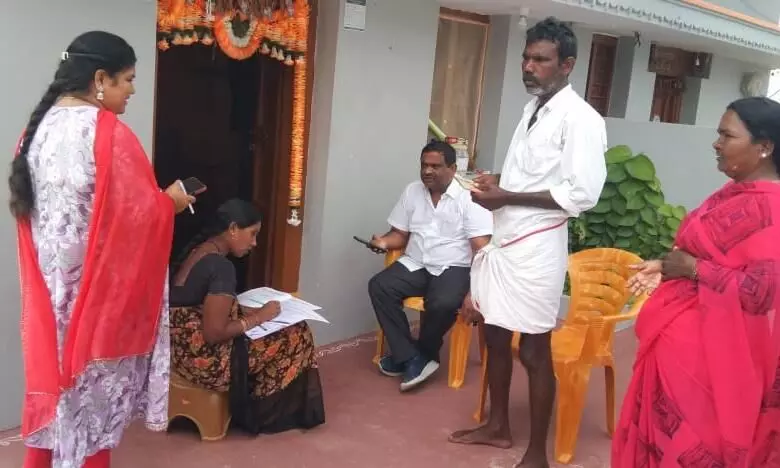Opinion: Why caste survey has become important in Telangana?
The initiative has met with both praise and skepticism, it is essential to examine the motivations behind it and recognize its potential benefits for the people of Telangana
By Newsmeter Network
Hyderabad: Telangana government's recent decision to conduct a comprehensive caste-based survey marks the first such exercise since 1931. It also fulfills the promise made during the Telangana movement. The government's decision is both courageous and necessary, marking a significant move toward social justice and equitable development.
While the initiative has met with both praise and skepticism, it is essential to examine the motivations behind it and recognize its potential benefits for the people of Telangana.
Casteism remains a deeply ingrained issue in both Telangana and Andhra Pradesh, where its lingering effects continue to shape daily life. Despite some strides in social reform, caste acts as a significant barrier to equality, manifesting in discrimination across education, employment, and social interactions.
The roots of this caste division can be traced back to the ancient Varna system, which established rigid societal hierarchies. However, the realities of casteism today have immediate and profound consequences for many.
Lower-caste communities often struggle to access economic opportunities and experience limited upward mobility. Moreover, caste identities are frequently exploited as political tools, further deepening divisions within society.
The persistence of violence and discrimination based on caste—especially against Dalits—highlights the urgent need for stronger protections and a comprehensive understanding of our current socio-economic landscape. Addressing these issues is essential for fostering a more just and equitable society in our region.
Addressing Long-Standing Challenges:
Dismantling centuries-old caste biases demands an approach that addresses education, awareness, economic upliftment, and social integration. The privileged sections of society may lack awareness of the realities of caste-based discrimination, while political actors often exploit caste identity for electoral advantage.
Effective solutions must include education and awareness campaigns, strict enforcement of anti-discrimination laws, economic empowerment initiatives, and social reforms that encourage inter-caste interaction and reduce prejudice. These actions, coupled with strong political will, are essential to driving real change in society.
Why this Survey Is Important:
In a democracy like India, meaningful reform relies on accurate and current data that informs policymaking. This survey is designed to fill gaps in understanding of disparities in education, income, and occupation that affect communities differently across caste lines. By providing a clearer picture, the government can address historical injustices, design targeted interventions, and empower marginalized communities with policy decisions based on factual insights.
Key Benefits of Socio-Economic Surveys:
Socio-economic surveys offer several benefits that can help foster inclusive growth:
Efficient Resource Allocation: Resources reach the communities that need them most, enhancing their impact.
Targeted Programs: Programs can be tailored to address specific challenges faced by disadvantaged groups.
Progress Tracking: Surveys create a baseline to track social and economic progress, guiding policy adjustments over time.
Social Harmony: Recognizing and addressing disparities promotes social harmony and inclusivity.
Through these benefits, surveys lay a foundation for equitable development.
Addressing Privacy Concerns:
There are concerns about the misuse of valid caste data, but the government has assured the public that this information will be treated with strict confidentiality and handled by professionals committed to privacy safeguards. This commitment is vital for building public trust and ensuring the survey's success, as privacy is a fundamental right.
Responsibility of Government:
It is also imperative for the government to communicate the survey's purpose effectively. By clearly outlining its goals and objectives, the government can address public concerns and encourage widespread participation in this initiative.
In conclusion, Telangana's caste-based survey is a forward-looking step toward creating a fairer, more inclusive society. By gathering accurate data to inform policy, the government is working to build a Telangana where every individual has the opportunity to thrive, regardless of caste or social background. I urge civil society to recognize the larger context of this initiative and collaborate with the government to develop effective, equitable policies that benefit marginalized and economically weaker sections.
Disclaimer:
Shashidhar Vuppala is an IT professional and independent researcher based in Hyderabad.
The views and opinions expressed in the article are those of the author and do not reflect the official policy or position of NewsMeter.